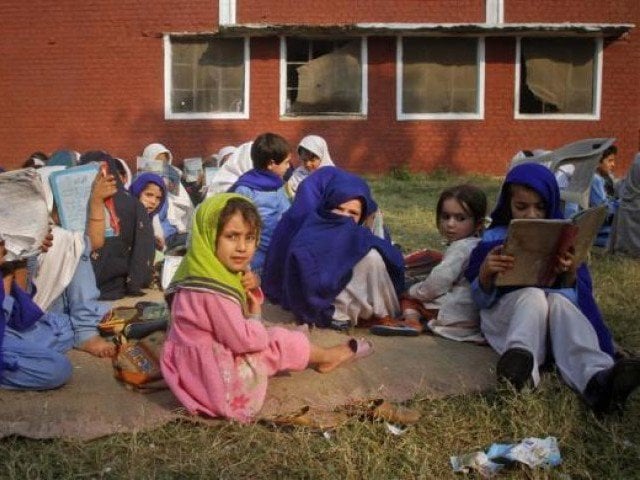
According to District Education Rankings issued by the education campaign Alif Ailaan, the Diamer valley is one of the most backward areas in G-B, and perhaps in the entire country, in terms of education. It is ranked at 95 out of 148 districts in the country for education and 127 in terms of infrastructure and facilities.
‘Women are systematically educated into domesticity’
Women literacy rates in the valley are also quite low with Education Director Fareedullah claiming that only four per cent of women in the valley are educated. To counter this, the government has set up home-based schools in the valley.
These schools not only offer girls and women in the valley a chance to learn how to read and write but also vocational skills which they can use to help supplement their household income.
Rahimullah, a district inspector of schools in Diamer, said that there are now 75 home schools in the district.
“Home tutoring is the only solution through which you can educate girls in the valley,” said Ayesha Jehangir, a social activist from the Diamer valley. While based in Islamabad, she runs the Green Development and Welfare Organisation (GDWO) in the valley, a non-governmental organisation working on women’s issues in the region.
“There are some women who are educated enough to teach girls up to the fifth grade and they can only be employed if there are home-based institutions,” adds Jehangir, a Chilas native, while referring to the culture in Diamer where women are discouraged from taking part in activities outside their homes.
In education: Committing to equality for women
Her organisation is among those operating home-based primary school for girls in Bunar Das area of Chilas where around 80 girls study. She employs two female teachers at the school while students are provided with books and uniforms free of cost. A library has also been set up in the school with support from Chilas based Diamer Poverty Alleviation Programme (DPAP).
Apart from schooling young girls, the social activist also arranged training for local women to make traditional jewellery called “tuk” and another ethnic embroidery.
Rahimullah acknowledged that they were doing a
good job.
Published in The Express Tribune, March 27th, 2017.


1731637727-0/Bear--(1)1731637727-0-165x106.webp)

1731619853-0/ice-cream-(1)1731619853-0-165x106.webp)
1708870589-2/PATS-(3)1708870589-2-270x192.webp)

1731647129-0/Untitled-design-(56)1731647129-0-270x192.webp)









COMMENTS
Comments are moderated and generally will be posted if they are on-topic and not abusive.
For more information, please see our Comments FAQ